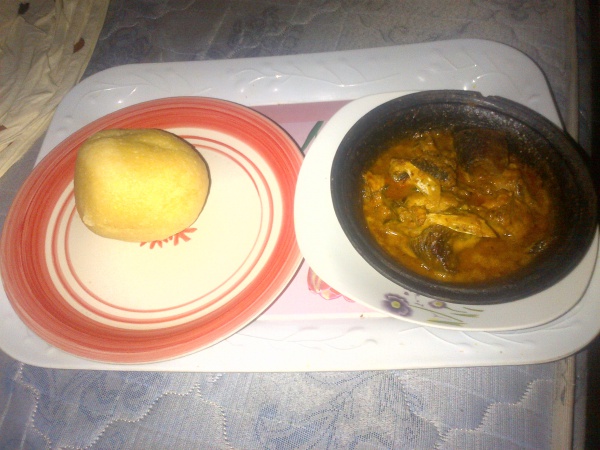Facts About Banga
Palm nut soup is a cherished traditional dish in many African cultures, made primarily from palm fruit. In Ghana, it is known as "abenkwan" while in Nigeria, it goes by names such as "banga soup" "ofe akwu" "oghwo amiedi" or "izuwo ibiedi." This flavorful soup is typically enjoyed with fufu, banku, or rice.
In Nigeria, banga soup has its origins in the Niger Delta region, particularly among the Urhobo people. It is distinct from "ofe akwu" an Igbo variation of palm fruit soup. The rich, aromatic flavor of banga soup comes from a blend of ingredients such as beletete, aidan fruit, rohojie, Banga spice leaves, onions, crayfish, chili pepper, and salt. Traditionally, it is served with a type of cocoyam pudding called "kwacoco" and can be made with fresh catfish, dried or smoked fish, or meat. Some recipes also include okra for added texture.
For the Urhobo, and also the Isoko and Okpe ethnic groups, banga soup is typically paired with "Usi" a yellow starchy paste made from cassava starch. Others may prefer eating it with eba. This soup is not just a meal; it holds cultural significance and is often served during ceremonies and special occasions within the Urhobo community.
Whether you are enjoying it with fufu, eba, or rice, palm nut soup is a hearty and flavorful dish that brings a taste of African tradition to the table.

 Cameroon
Cameroon